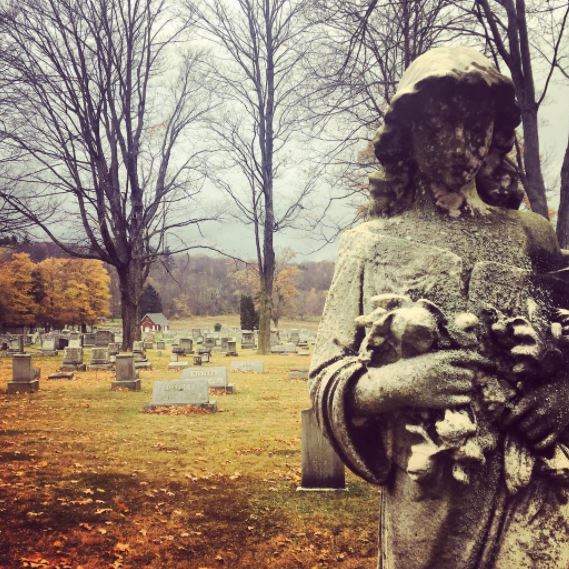
Strangely, this question has surfaced several times in the last few weeks. I say “strangely” because I don’t recall it being asked in a very long time. Then, I heard it three times in that many weeks. That seemed strange to me.
So, what happens to me when I die?
This is an interesting question indeed. First, however, the obvious:
The heart, which pumps life-giving, oxygenated blood to every extremity of your body will cease pumping. Cells, which need that oxygen, will begin to die. Your brain will most likely show brain activity after the heart has stopped. However, this will quickly diminish, and then cease altogether. Life will be gone. Someone will officially pronounce that you are no longer alive, but are dead.
But look again at the question being asked: what happens to me when I die? The question poses a very interesting thought: What happens to *me* when I die?
Me.
What happens to ME?
It is as if we intuitively understand that there is a difference between “me” and my body. You cannot be the sum total of all of the parts of your body. If that were the case, then anyone who lost a finger, or donated a kidney, would no longer be a person since they would be less than that sum total. That would be ridiculous. It is obvious that our personage is not necessarily linked to our bodies. I believe that we intuitively recognize that you and I as persons are more than just flesh and blood. There is a *me* that is more than just my body.
The Apostle Paul recognized the same thing when he suggested that to be “absent from the body,” meant that he would be “present with the Lord,” (2 Corint. 5:8). If Paul could be absent from his body, then he saw that he – Paul – was not a body, and that he as a person could be separate from his body.
I don’t believe the Bible gives us a lot of data to know precisely what happens immediately upon death. The most oft-cited passage of scripture to this question is Luke 16:20-31. This is a parable – or story – told by Jesus to a group of Pharisees. It is generally referred to as “the Rich Man and Lazarus.” In the parable, Jesus told how a rich man had lived very selfishly and upon his death “lifted up his eyes” from a place of horrible torment. Simultaneously, a poor beggar named Lazarus had died and was transported by angels to a place of comfort upon his death.
The problem is that Jesus did not tell this story for the express purpose of teaching us what happens when we die. In fact, a few verses before the parable we are told that the Pharisees were “lovers of money” (vs. 14). Therefore, the parable seems to have been directed toward those who loved money more than people. Its message may simply be that those who trust wealth have an undesirable end. Any who insist that this is a description of life immediately after death are saying something that the Bible does not explicitly say. It may be true; but we just don’t know for sure. Had Jesus said something like, “Now this is what happens when you die…,” then we could know. But, because he was teaching on another point, it’s not certain to me that he was giving us a detailed account of what happens immediately upon death.
There is another passage, however, that gives us some good insight. As Jesus hung on the cross, a criminal beside Him had an apparent change of heart and responded in faith to Jesus (Luke 23:49-43). Jesus promised the man that “today, you will be with me in Paradise.”
I believe that this passage is highly suggestive of the afterlife. Although Jesus died before the man, He had promised this new believer that they would be reunited later “today.” We have no details about this reunion, but we can have confidence that the person – or soul – of the thief, and the Person of Jesus met shortly after their deaths. Though their bodies were still on earth, the immaterial part of their being was in a place Jesus described as “Paradise.”
One might ask, “how do we know that the thief had an awareness of his presence with Jesus in Paradise? Could he have been with Jesus but did not know it?”
I would reply to this good question with some insight Paul gave us in Phil. 1:22-23. In this passage he discusses the advantages of both staying here on earth to serve Jesus, and departing to be with Him. Of these two alternatives, he suggested that the latter was “far better.”
I believe it is reasonable to assume that Paul would not have exchanged awareness for unawareness, or consciousness for unconsciousness. In another place, he wrote that he now knows and sees in part, but would later know and see more fully (1 Cor 13:9-12). This suggests to me that not only will we be aware of our surroundings, but we will be even more aware than we are now!
Based on what Jesus promised to the thief, and on what Paul believed, I think we can say with confidence that those who die faithfully in Jesus will be with Him shortly after their death, and be fully aware of His presence and their surroundings.
Those who do not walk by faith in Jesus have little reason to share in this confidence.
peace,
dane
Dane Cramer is a backpacker, Christian blogger, jail chaplain, amateur filmmaker, and author of two books: Romancing the Trail and The Nephilim: A Monster Among Us